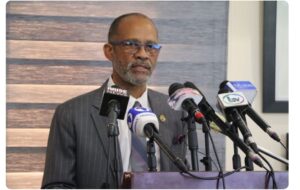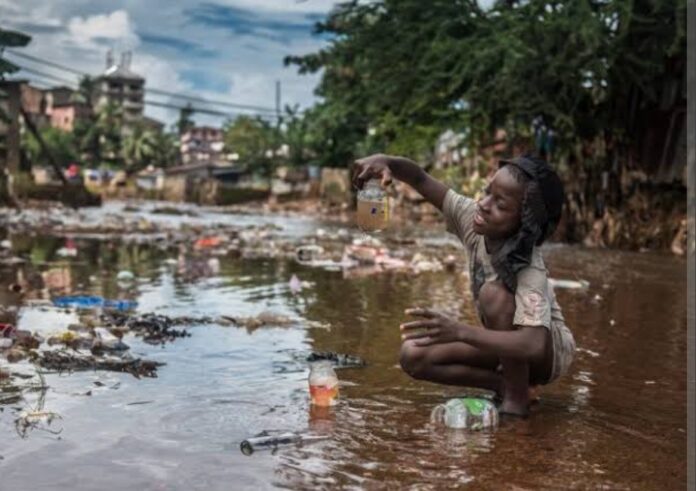A deadly Cholera outbreak has struck Lagos, leading to the deaths of five individuals and the hospitalization of sixty others.
The state government has issued a statement on Tuesday, urging heightened vigilance and the adoption of precautionary measures to prevent the spread of the disease.
According to the government, there has been an increase in severe gastroenteritis cases reported in Lagos over the last 48 hours.
Professor Akin Abayomi, the Lagos State Commissioner for Health, revealed that cases of severe gastroenteritis have been documented in communities across Eti Osa, Lagos Island, Ikorodu, and Kosofe LGA. This has resulted in approximately 60 hospital admissions, with five fatalities recorded, primarily due to patients presenting late with severe dehydration.

He stated that as of April 28, 2024, Nigeria has reported 815 suspected cases of cholera and 14 deaths across 25 states.
The Commissioner highlighted that Lagos State has witnessed a significant rise in cases of severe vomiting and diarrhea following recent rains. He emphasized that urban slums and densely populated areas with inadequate sanitation were particularly vulnerable.
Abayomi clarified that cholera is a highly contagious disease characterized by severe diarrhea and can be life-threatening. He further explained that it poses a substantial health risk in regions with poor water treatment and sanitation, potentially affecting Lagos State.
He mentioned that treatment for cholera involves rehydration through Oral Rehydration Salts (ORS) for mild to moderate dehydration. For severely dehydrated patients, intravenous fluids are administered only in medical facilities under the supervision of medical personnel.
In terms of prevention, citizens are encouraged to ensure the safety of their drinking water by boiling, chlorinating, or using bottled water. Additionally, they should avoid consuming ice products made from untreated water. Proper sanitation practices such as using toilets, safely disposing of feces, and avoiding open defecation are also emphasized as crucial preventive measures.
He urged citizens to rely on the Lagos State Ministry of Health, the Nigeria Centre for Disease Control (NCDC), and accredited local health facilities for guidance, advice, and updates on prevention, treatment, and management of cholera.
Additionally, he provided emergency hotlines for reporting suspected cases: 08023169485, 08137412348, or using helplines 767 or 112.
Lastly, Abayomi emphasized the importance of maintaining high standards of hygiene and taking proactive measures to prevent cholera. Lastly, he reassured the public of the commitment of the Government of Babajide Sanwo-Olu to ensuring the health and well-being of its citizens and promised to keep them informed.




